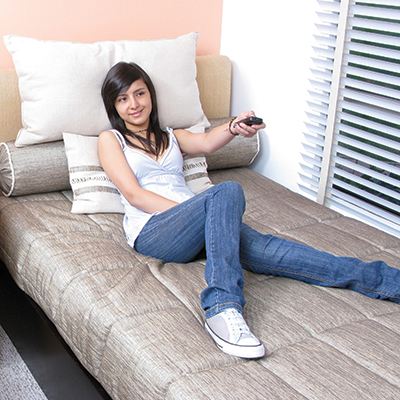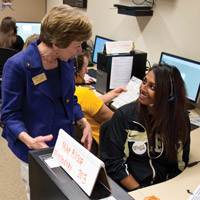
59% of kids ages 10-14 have a TV in their bedrooms
- JAMA Pediatrics, May 2014
More sleep is good, but better sleep is best
Jones cites a recent sample of preschool children showing that 69 percent had TVs in their bedrooms. He says the figure was so dramatically high that some questioned it. Recently, however, Jones says a second statistic was reported that gave further credibility to the first. "Another published article found that almost 60 percent of 10- to 14-year-olds had a TV in their bedrooms, too."
The American Academy of Pediatrics has sounded the alarm on this topic, imploring parents to establish "screen-free" zones at home by making sure there are no televisions, computers or video games in children's bedrooms, and by turning off the TV during dinner. The academy says that children and teens should engage with entertainment media for no more than one or two hours per day, and that should be high-quality content. It says children should spend time on outdoor play, reading, hobbies and using their imaginations in free play.
This is easier said than done, Jones points out, citing comments from parents in lower-income, urban areas. "They say the bedroom TV is important because their neighborhoods aren't safe. They don't want to send their children outside, but they also don't want them hanging around them all the time because the parents have a lot of other responsibilities to handle at home in a short window of time.
"The problem with the TVs and other devices is if there's no way to cut it off, especially at night, and you're not really sure if they're watching or what they're watching." Jones says that if older siblings share the bedroom they may stay up late watching shows that are inappropriate for the younger child, and if the younger child falls asleep, their sleep is not as sound with the noise and the changing light of the TV in the room.
With all healthy lifestyle changes, Jones acknowledges that it's far easier to embrace the logic than the actual practice.
"It's not just educating parents. It's trying to understand what their motivations are so we can address them. It's providing alternatives that keep parents from being stressed out by their kids, while letting the kids unwind and spend time with their parents in a positive way."











